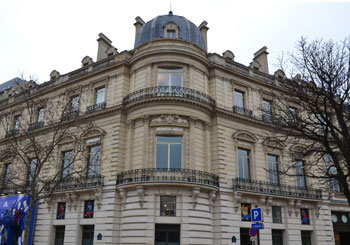Norwegian newspapers were full of stories on Wednesday detailing how every Norwegian will soon own a little piece of property on the Champs-Élysées. That’s in addition to some other high-end property on Regent Street in London, all courtesy of the fortunes built up in what’s widely known as Norway’s oil fund.

The fund, officially known as the Norwegian Government Pension Fund Global, recently emerged as the largest sovereign wealth fund in the world. It began branching into real estate investment and bought up large portions of Regent Street in London earlier this year.
Now the fund’s managers have been dealing with French real estate brokers and ended up investing NOK 5.5 billion (USD 1.1 billion) in exclusive properties in and around Paris, in partnership with French insurance giant Axa.
Among the purchases are 50 percent stakes in a commercial building at 12-14 Rond Point des Champs-Élysées along with other office buildings including OPUS 12, 92 La Défense. All told, the purchases revealed on Tuesday amounted to major stakes in seven large properties totalling 156,000 square meters, for a price of EUR 702.5 million.
The purchases, according to the oil fund’s real estate director Karsten Kallevig, fit in well with the fund’s strategy to invest in the biggest European markets. The properties in Paris are expected to yield around NOK 300 million in annual rental income along with eventual capital gains.
“We want to focus on the larger, but liquid markets,” Kallevig told newspaper Dagens Næringsliv (DN). “That means London and Paris and the biggest German cities.”
And that in turn suggests that property in cities like Berlin will be next in line. The fund would like to invest in the US as well, but faces some tax challenges there, while investment in some Asian cities may be likely next year or the year after.
The fund got the green light last year to invest as much as 5 percent of its total assets (currently valued at NOK 3,139 billion) in real estate. As of March it only had 0.1 percent of its assets in real estate, while the rest was placed in stocks (61.3 percent) and fixed-income securities (38.6 percent).
That indicates a lot more money available for more real estate purchases, with no need for borrowing. French officials, for their part, seemed to welcome the Norwegian investment, with Axa executives hailing the Norwegians’ long-term outlook and clear investment goals.
Debate continues over whether the oil fund should also invest more at home in Norway, where schools, roads, the rail system and other infrastructure need improvement. Most politicians, however, worry that would set off inflation and they remain keen on limiting domestic use of Norway’s oil revenues, saving them instead through the fund that invests abroad.
Views and News from Norway/Nina Berglund
Join our Readers’ Forum or comment below.
To support our news service, please click the “Donate” button now.

